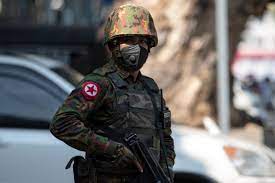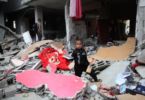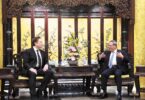Myanmar, the military-ruled Southeast Asian Nation, is currently in the grip of ethnic and religious violence after the Army Generals seized power through an armed military coup in early 2021. The democratically elected government leader and Nobel Peace Prize winner Aung San Suu Kyi and her cabinet is in military incarceration and facing politically motivated court trials and coercion. Meanwhile. the armed groups have launched a collective offensive against the military. Myanmar has seen the most significant escalation in hostilities across the country since the coup, which sparked a widespread armed uprising. Resistance forces have in recent weeks managed to overtake hundreds of military outposts, including strategic border crossings with China and India.
The fresh wave of violence has caused mass exodus and more than 50,000 people took refuge from Northern province Shan to other parts of the country, because of fierce fighting between Northern Alliance and military thus the total number of IDPs exceeded 2 millions. According to the UN agencies, 363 civilians had been killed while over 450 sustained injuries during the fresh wave of violence. Currently, the areas along with Chinese and Indian borders are under rebel control and Myanmar military is on the backtrack. The political unrest and months-long armed clashes between ethnic groups and military has pushed the South Asian nation into grave economic and humanitarian crises.
Historically, the people of Myanmar successfully defeated decades long dictatorship under the brave leadership of Aung San Suu Kyi several years back but the democratically elected woman leader could not establish civilian supremacy in her nation and displayed criminal silence over the Military’s campaign against Royangia Muslims. Later, the military General toppled Suu Kyi’s rule and plunged that nation into a series of crises. Currently, Myanmar has become a battlefield for its neighbours who are blatantly supporting warring factions to establish their influence in that country. Historically, Generals are trained for the specific purpose of security and defense of a country’s frontier, hence they are not well versed with the tact of statesmanship. Therefore, a majority of third world security states often face the dilemma of military coups and dictatorship as generals perceive politicians as traitors and thieves. Thus the public suffers miseries and battles of self-claimed patriots and nation saviours turn the multiple nations into rubles.







